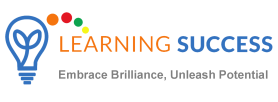Implementing “Reverse Fire Drills” for ADHD Support
In a discussion about supporting children with ADHD, the concept of “reverse fire drills” was introduced as a method to establish structured routines. This approach involves setting up a clear, step-by-step process for daily tasks, using visual cues such as tap lines and tags. For example, when a child comes home, they would see a tag at the door that instructs them to “take off shoes,” followed by another tag to “hang up coat,” and then another to “put backpack in designated spot.” This method helps children follow a routine consistently. For parents of children with dyslexia, implementing reverse fire drills can provide a structured and predictable environment, aiding in the development of their child’s executive function skills.

Skill-Building Secrets for Medication-Free ADHD Management
As a parent of a child with dyslexia, you know firsthand the unique challenges and triumphs that come with nurturing their growth. You hold the power to make a profound difference in their life, and today, you’ll discover three invaluable strategies to support them. Learn how to implement “reverse fire drills” for building structured routines, the importance of skill-building for medication-free management, and how to encourage self-advocacy from a young age. Embrace your role as your child’s champion, and let’s embark on this empowering journey together.
Skill Building for ADHD Management
In a recent discussion, experts emphasized the importance of skill building for children with ADHD who are not taking medication. They highlighted that while medication is one tool, focusing on developing specific skills is crucial for effectively managing symptoms. The experts specifically mentioned the need to work on skills related to impulsivity, executive function, and emotional regulation. For example, teaching a child techniques to pause and think before acting can help manage impulsivity, while strategies like using planners or checklists can improve executive function. This insight means that parents of children with dyslexia, who may also have ADHD, should prioritize and invest time in helping their children build these targeted skills to thrive without relying on medication.
One of the things developmentally we can sort of predict is that a lot of our kids as they want to become more strong individuals one of the things they may grab onto is hey I don’t want to take these meds anymore and if you don’t have the right skills in place and your child’s not developmentally ready to handle this on their own you know that’s that’s something to be concerned with if you’ve had good Med response.
"
Encouraging Self-Advocacy in Young Children with Dyslexia
During a discussion on supporting children with dyslexia, a key insight shared was the importance of encouraging self-advocacy from a young age. The speaker emphasized the need for children to learn how to express their needs and navigate their environment effectively, stating, “One area that is always top of mind for me particularly as kids are getting older is self-advocacy how do I say what I need say what’s not working for me and get the things I need from my world…it’s always something I’m thinking about even when you have little little kids.” This highlights the necessity of teaching even the youngest children with dyslexia to communicate their requirements. For parents, this means actively fostering these skills in their children, helping them articulate what they need and what isn’t working for them. By doing so, parents can empower their children to better manage their dyslexia and interact more confidently with their surroundings.
Key Takeaways:
Skill Building is Essential: For children with ADHD who are not on medication, skill building in areas such as impulsivity, executive function, emotional regulation, social skills, and self-advocacy is crucial. Parents can support their children by implementing structured routines and rituals, like the "reverse fire drills" for organizing belongings, to help them manage daily tasks more effectively.
Practice Social Skills Through Roleplay: Social interactions can be challenging for children with ADHD due to difficulties in picking up subtle cues. Parents can help by practicing social skills through roleplay at home, focusing on conversation starters and teaching children how to engage and disengage from conversations gracefully. This practice can enhance their ability to form and maintain friendships.
Encourage Self-Advocacy: Self-advocacy is an advanced skill that involves understanding one's needs and communicating them effectively. Parents can aid their children by teaching them about their ADHD and how it affects them, and by using tools like self-advocacy cards to help them request accommodations in school or at home. Praising children when they advocate for themselves reinforces this important skill.
Practical Strategies for Dyslexic Children
For parents of children with dyslexia, integrating practical strategies into daily life can make a significant difference. Start by creating a structured routine that includes specific times for homework, reading, and breaks, which can help manage time and reduce stress. Use multisensory learning techniques, like tracing letters in sand or using clay to form words, to engage different senses and reinforce cognitive processing skills. Encourage your child to use technology, such as audiobooks or text-to-speech software, to support their reading and comprehension. Lastly, celebrate small victories and maintain open communication with teachers to ensure consistent support both at home and school. These steps can help your child build confidence and navigate their dyslexia more effectively.
One area that is always top of mind for me particularly as kids are getting older is self-advocacy how do I say what I need say what’s not working for me and get the things I need from my world um through the things I do um and it’s obviously skills kids will develop over time but it’s always something I’m thinking about even when you have little little kids.
"“Empowering Dyslexic Children: A Holistic Approach”
For parents of children with dyslexia, embracing a multifaceted approach can lead to remarkable long-term benefits and growth. By focusing on building skills such as executive function, emotional regulation, and impulsivity management, children can improve focus and thrive academically and personally. It’s encouraging to know that with patience and the right strategies, these kids can develop into confident, self-reliant adults. Realistic expectations are key; progress may be gradual, but each step forward is a victory worth celebrating. Remember, you’re not alone in this journey, and the efforts you put in today will pave the way for a brighter, more empowered future for your child.
Empower your child with dyslexia to thrive by downloading the Focus Foundations eBook and start building essential skills for a brighter future today.

